Scary Monsters (and Super Creeps)

In an idle moment yesterday I found myself reading Paul Morley’s Financial Times piece about the rerelease of David Bowie’s Station to Station. I’m aware Morley is one of those figures who generate strong feelings in the music world (though let’s face it, when it comes to grudges music people make Al’Qaeda look like amateurs), but the piece reminded me not just of how thrilling a lot of the music Bowie made in the 1970s was, but just how important it was to me when I was growing up.
I think the first time I really became aware of Bowie was in 1980. I was 13, in my first year at high school, and not doing well. I was overweight, unpopular and genuinely struggling to fit in.
Like most Australian kids in the early 1980s, my experience of music was largely mediated by Countdown. I don’t think it’s easy for people who grew up after Countdown’s heyday to grasp its cultural reach, but it really was a phenomenon, not just because everybody – and I mean everybody – under the age of 30 watched it, but because its choices informed Australian popular culture in a really direct way. Monday mornings at school were all about whatever it was that was on Countdown last night, and the bands and music Countdown endorsed were pretty much guaranteed to dominate the charts and airplay.
It’s difficult, in many ways, to reconcile the images of old Countdown episodes and their clusters of screaming kids in ugg boots and duffle coats and footy scarves with Bowie’s cerebral pop, but it was Countdown that introduced me to Bowie, and more particularly, to ‘Ashes to Ashes’. I don’t remember exactly when I heard it the first time, but I do remember the feeling I was seeing something quite unlike anything I’d seen before. It wasn’t just the video, which still looks remarkable today (perhaps not surprising given that at the time it was made it was the most expensive film clip ever produced), it was the song itself, its enigmatic, haunting lyrics, the layered synths and beats, even the ticks and pops of the percussion layered over the top.
I knew Bowie’s name, of course, though I’m not sure I knew the music. He’d been on tour to Adelaide a couple of years before, and I remember watching the ads on the television and thinking he looked like some sort of vampire, but the music came as a revelation, and as soon as I could afford it I bought the album.
I wonder now what I made of Scary Monsters back then. Presumably details like ‘Fashion’s play on “fascism” went straight over my head. But irrespective of how much of what I was listening I understood in an intellectual sense (or indeed an emotional sense: listening to ‘Ashes to Ashes’ at 43 I wonder what my 13 year-old self made of its riffs on loss, middle-aged failure and addiction (“Time and again I tell myself/I’ll stay clean tonight/But the little green wheels are following me/Oh no, not again”)). But I understood enough to know this was music that mattered, and which spoke to me in a very personal way.
 I suppose all of us feel the need to read our own lives through the prism of music, and to accord songs and artists more significance than they probably possess. But Bowie is one of those figures, like Dylan, who were genuinely significant, and even today exercise considerable influence (though I’d have to say I think it’s probably better to pretend he never recorded anything after about 1981). And, like Dylan, it wasn’t all about the music either, but about what he represented.
I suppose all of us feel the need to read our own lives through the prism of music, and to accord songs and artists more significance than they probably possess. But Bowie is one of those figures, like Dylan, who were genuinely significant, and even today exercise considerable influence (though I’d have to say I think it’s probably better to pretend he never recorded anything after about 1981). And, like Dylan, it wasn’t all about the music either, but about what he represented.
Much is made of Bowie’s metamorphoses, the creation and shedding of personas, from Ziggy to Aladdin Sane to The Thin White Duke, but in a way the point of him was never the individual personas, but the process of metamorphosis, the sense that identity could be polymorphous, and that the self might be something one could invent.
I’m not sure I would have put it in quite these terms in 1980, but it’s interesting that both the films Bowie has inspired – Todd Haynes’ Velvet Goldmine and John Cameron Mitchell’s Hedwig and the Angry Inch, are about precisely this process of self-creation, and grounded in a sense of the confusion and yearning of adolescence. They’re about the need to become something and someone else, and of the cost of that process.
I’m often struck listening to people a few years older than me by the importance they accord The Go-Betweens, a band I’ve always found considerably less interesting than others clearly do. But I’m quite clear that once again the music is less important than what the band represented, their conspicuous artiness in a place deeply mistrustful of difference and sophistication, the way they suggested a different way of being Australian, and of ways in which the Australian landscape and European traditions might speak to each other.
For me though it was always about Bowie. In suburban Adelaide in the 1980s I could listen to him over and over again, and imagine a different sort of world, a larger, more urgent one, and just as importantly, a different way of being me. He taught me that glamour matters, and chic, and that being different is something to celebrate.
Much later I met him in person. It was late 1983, and after the Serious Moonlight concert a friend of mine, who had made it his business to get the autograph of every rock star who came through Adelaide dragged me off to the hotel where Bowie was staying to stake him out. The place was surrounded by fans, but we snuck in, and somehow managed to catch him in a corner of the lobby alone. He smiled, and signed my friend’s book, and I shook his hand. Beyond that I’m not sure I remember much of the encounter, other than how slight he was, and the way the ordinariness of his London accent made him seem less glamorous than I had expected him to be. But that, I suppose, shouldn’t have surprised me: the man himself was never the point, what mattered was the music, and the image, and the things that represented. And they’re things I still feel connected to today.
Break text
Break text
Trackbacks & Pingbacks
- Moondust will cover you: the story of David Bowie and me – LiteraryMinded
- Moon dust will cover you: the story of David Bowie and me
- Moon dust will cover you: the story of David Bowie and me « eNewsTips
- “It’s the devil I love”: Neko Case, Bob Dylan and David Bowie | city of tongues
- David Bowie: Loving the Alien | city of tongues



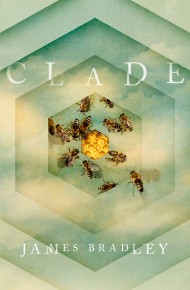

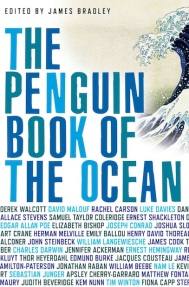
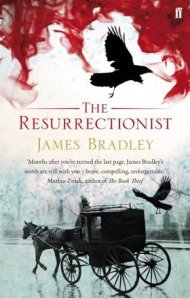
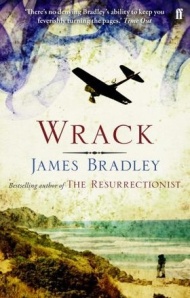
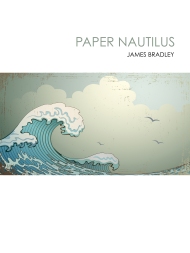
oh yes yes yes, James, to Bowie. And I am so with you on the Go-Betweens too. Never got them.
Should also have said great post, thanks. (And you’re right about Countdown too.)
My teenage experience of Bowie pretty much matches yours! Many years later I wrote a short book about Bowie’s Low, which you might be interested in taking a look at one day:
I’ve read The Execution but not your Low book so will try and check it out.
Bowie: my favourite artist of the 20th century. Which is to say my favorite artist.
Oh come on people, the Gobies had a female drummer for gorsakes! And a cool guitarist – Robert, not Grant.
I love Davie Jones with a fierce, sexually confused and relenting passion (although I’d give him ’till 1985), but ‘Cattle and Cane’ and ‘Streets of Your Town’ can sit proudly in my mental iPod next to all but his very best…
“‘Cause I love that engine roar, but I still don’t know what I’m here for.”
And, it seems, Bowie is also a reasonable predictor of technological trends: http://bit.ly/bWsr3f
PS Pledged dual allegiance to the Brixton boy and Brissy’s finest many years back.
I have read Hugo’s book on Low, and can recommend it. Ashes to Ashes is notable as an example of lyrical auto-commentary, in a tradition started by John Lennon in ‘Glass Onion’, in which the singer uses part of a new lyric to offer a retrospective interpretation of a previous song: in this case, ‘Look out Major Tom’s a junkie’ (and indeed ‘Space Oddity’ makes a lot of sense if interpreted as the monologue of someone experiencing an opiate overdose). The next line ‘Hitting an all-time Low’ (my caps) is perhaps also a reference to the album Hugo wrote about.
Ah, Jon, you’re a marvel. And I’m now dead keen to read Hugo’s book as well, which sounds fantastic.
it’s taken me all day to collect my thoughts after reading your post on Bowie, Mr Bradley.
The self-reflexive nature of Ashes to Ashes is what always entranced me about this song – not only was it clever, it showed the artist being aware of the breadth of his work, or the transition – the metamorphoses you referred to … harking back to Major Tom in his tin can.
It’s what i later learned to be a post-modern piece, i guess. i just loved it from the moment i heard it. The dysjunctive rhythm, kind of squeaky sound at the intro … every time I hear it i am transported to my first flat in Bondi where I too was in transition from who I had been to who i was becoming … i drove my flatmate mad with it. But reading your blog today has led me to the luxury of finding my 45 and playing it tonight at our thursday night disco here at home. so thank you.
As for the video, it’s hard to know where to start – the amazing costuming, the lunar set which took me back to The Man Who Fell to Earth (note to self – must watch this film now i am an adult – might understand it), the high priestesses doing the bowing dance, the mother telling him off about major tom … sooo 80s, so Sydney, for me. As I said before … too distracting 🙂
I am so with you. On all counts. It’s odd the way music (like smell) has the capacity to take us straight back to who we were in such an unmediated and powerful way. I suppose it’s partly about the way we invest in music, and use it to make sense of the way we feel about things, but it’s still extraordinary.
Just catching up on your blog. As a young girl in the 70s (aiyeee), I found David Bowie to be so very appealing – and I too was a product of Countdown. I thought he was very sexy, which is now quite surprising, because (I didn’t realise this at the time) he was so slight, so androgynous and so weirdly ‘out there’. I watched a repeat of 7 Ages of Rock the other night and learned so much more about the early Bowie, how he reinvented himself several times over until he became the star he was/is. Intriguing and extraordinary. And some of his music will absolutely stand the test of time. A genius with a working class London accent. Extraordinary.
The first album I ever bought on my own was Bowie’s Heroes. The next was Patti Smith. My mother, who thought Olivia Newton John was IT, kept asking me why I liked this ugly music. But I thought it so beautiful!
Are you going to Michael Clark’s Bowie-inspired dance at the Melbourne Festival? http://www.melbournefestival.com.au/program/production?id=3708&idx=2&max=54
Thanks for that post. It immediately took me back to the late 70s/early 80s, when I first discovered Bowie. I not only went and bought the album, I bought every album I could find. Later, when I lived in West Berlin in 1987, I went and found both the building he used to live in and the studio where he recorded Low and Heroes. Why? Fascination. The metamorphoses, the music, the angst and Zeitgeist. They resonated through me via the music. I was haunted … up to the Berlin concert in front of the Reishstag, where I was crushed in a crowd of 10s of 1000s, while the East Berliners rioted on the other side of the wall and Bowie seemed like a Greek god playing with the fate of mere mortals. Well, it was a hyperbolic moment. I continued to follow Bowie for a few years, but my personal opinion is that his best work was in the 70s and very early 80s. Perhaps that is because my memories make it so.
Countdown was also pretty significant to (some, at least of) those of us over 30 at the time.